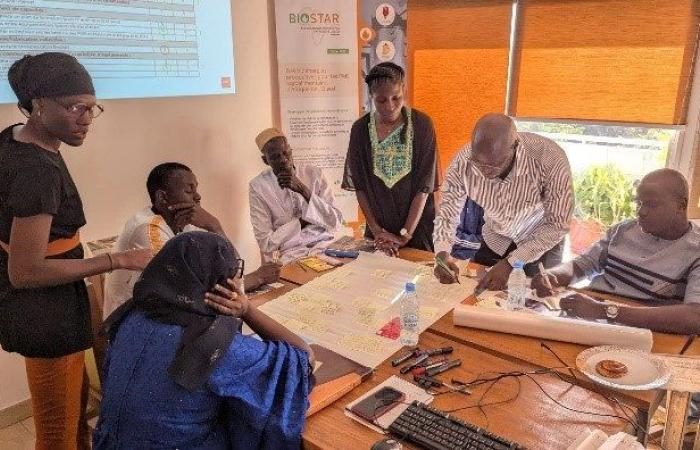In Senegal, access to energy for small and medium-sized agri-food enterprises (SMEs) is limited and expensive. Alternative energy solutions to the use of wood, coal or gas for heat production do not fully meet the needs of artisanal or industrial activities. Access to electricity via generators equipped with thermal engines or via solar panels also have disadvantages (irregular fuel supply, intermittency, low power and high cost of solar energy for maintenance, etc.), while that the national electricity network, unreliable and expensive, mainly serves urban areas.
These various problems hinder the development of rural agri-food SMEs, which are forced to set up in peri-urban areas. This leads to high costs for transporting raw materials and post-harvest losses. At the same time, most processing units generate organic residues whose management poses environmental and health problems, even though they could serve as a resource to produce energy. Finally, agri-food SMEs lack skills and information on energy systems adapted to their needs and few players are able to offer technical solutions or ensure equipment maintenance.
Valorizing residues from agri-food processing for the production of bioenergy
The BioStar project, financed by the European Union and the AFD and supported by Cirad and its partners, supports the growth of production of bioenergy from organic residues of agri-food SMEs. To achieve this, the project promotes an integrated approach, involving SMEs, inter-professional organizations in the sectors concerned, professionals in the manufacturing and maintenance of equipment, public support services and financial institutions. Thus the BioStar team, in collaboration with local equipment manufacturers, has for example developed a new process for steaming cashew nuts supplied with heat from a cashew shell combustion hearth, or even a peanut roaster operating at peanut shell instead of charcoal. This equipment is installed in various pilot SMEs which are experimenting with these innovations.
Create an environment favorable to the development of the bioenergy sector
As part of a service provision for CIRAD, GRET supports the development of the bioenergy sector in Senegal. After having carried out a mapping of the actors and an analysis of the sector, GRET studied capacity building needs and the existing training offering. It also supports the progressive structuring of bioenergy professionals (energy equipment manufacturers, service and maintenance companies, etc.) at the national level as well as local consultation around experimental sites in order to promote the dissemination of technologies. Finally, it carries out activities in favor of economic sustainability and the emergence of an environment favorable to the development of the sector (study of public incentive policies, inventory of green funds and other available financing, etc.).
Annual workshops to stimulate collective action and organization of bioenergy professionals
To initiate and then maintain a collective dynamic, GRET organizes annual workshops bringing together bioenergy professionals. The third workshop organized by GRET on November 21, 2024 made it possible to update the action plan and prioritize actions for 2025: continuation of the collective design and manufacturing of equipment, greater regularity of exchanges between professionals, launch of reflections organizational aspects for their structuring, or even the upcoming organization of a study trip to Burkina Faso, another country of BioStar intervention.
Photo credit: ©BioStar






